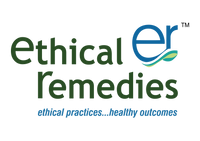A HEALTHY DIET IS THE KEY TO GETTING THE IRON YOU NEED

Anaemia is becoming a common nutritional disease these days, affecting over 2.9 billion of the world's total population directly. The condition is mainly caused by blood loss, the destruction of red blood cells, or your body's inability to create enough red blood cells.
The most common type of anaemia is iron deficiency anaemia. Although many people do not think of iron as being a nutrient, you might be surprised to learn that in developed nations like the United States, anaemia attributable to iron deficiency affects perhaps 1% to 2% of American adults.
In our body roughly 60% of the iron is held by the oxygen-carrying haemoglobin protein in red blood cells. The next largest storehouse is ferritin, a protein that latches onto iron and sequesters it in the liver, spleen, and bone marrow. When the body needs to draw on its iron account, it comes out of the ferritin bank. Without enough stored iron, an individual can develop anaemia. Symptoms include fatigue, loss of stamina, shortness of breath, weakness, dizziness, and a pale, unhealthy complexion.
We get iron from the food we eat. There are two types of iron in foods: heme iron and non-heme iron. Heme iron is found in meat, poultry, and seafood. Non-heme iron is found in plant foods and foods fortified with iron. Your body can absorb both types, but it absorbs heme iron more easily.
Eating a diet that is high in iron-rich foods such as leafy greens, fortified cereals, red meat, dried fruit, and beans can help fight iron deficiency anaemia. Also, remember these guidelines for effective results:
· Do not eat iron-rich foods with foods or beverages that block iron absorption. These include coffee or tea, eggs, foods high in oxalates, and foods high in calcium.
· Eat iron-rich foods with vitamin C-rich foods, such as oranges, tomatoes, or strawberries, to improve absorption.
· Eat iron-rich foods with foods that contain beta carotene, such as apricots, red peppers, and beets, to improve absorption.
· Eat a variety of heme and non-heme iron foods throughout the day to up your iron intake.
· Eat heme and non-heme iron foods together whenever possible to increase iron absorption.
· Add foods rich in folate and vitamin B-12 to support red blood cell production.
No one food will treat anaemia. But eating an overall healthy diet rich can help you get the iron you need to manage anaemia, while keeping up with the above guidelines.
For a person suffering with iron deficiency anaemia, it is hard to fulfil the requirement of extra and high amount of iron daily through diet alone. One may also need to take an iron supplement until the levels are replenished.
If you are looking for a vegan, vegetarian or plant-based iron supplement, EBMfer may be considered as EBMfer is free from animal products, sugar, gelatin, lactose, dye, dairy and gluten. EBMfer is available in capsules containing 100 mg elemental iron per capsule and raspberry flavoured liquid containing 5 mg elemental iron per mL of the liquid.
EBMmoms capsules is a vegetarian or vegan prenatal supplement that contains 100 mg iron and 1000 mcg of B12 including 12 vitamins and 5 minerals.

